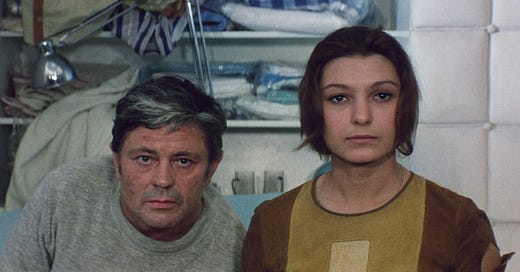How far would you go to escape your deepest well of pain? Then, what would you do if it followed you to the furthest place you could reach?
These are the questions that shape “Solaris,” the 1972 film by Andrei Tarkovsky. A loose adaptation of the 1961 book of the same name by Stanisław Lem, the nearly three-hour film explores Tarkovsky’s favorite topic: the futility of emotional repression.
Tarkovsky’s characters are typically haunted by their pain. His themes are recursive in nature but diverse in depiction. Your deepest source of pain will rise to find you in your weakest moment, he argues through his lens. It will arise on your deathbed, on the brink of nuclear war, or on a space station circling a distant and mysterious planet that couldn’t be further from home.
“Solaris” was a disappointment to Tarkovsky. He felt it was limited by its origins as a science-fiction story. It also led to a falling out with Vadim Yusov, his longtime cinematographer and creative partner. He returned to some of “Solaris’” themes in a later film, “Stalker.” The elements had gripped him, but the execution of “Solaris” had left him unfulfilled.
But "Solaris" has stuck in my mind since I first saw it last year. It didn’t give me the mind-boggling emotional reactions I’ve felt in the process of watching his other works like “Mirror” and “The Sacrifice.” But it’s the only one of Tarkovsky’s films that I have seen (“Ivan’s Childhood” and “Andrei Rublev” remain on the list) that provokes positive, tender feelings when I think back on it now.
It is a tremendously sad film, a slow-burn portrayal of a man who cannot escape the memory of his dead wife — Hari — even by leaving his own solar system. The film’s protagonist, Kris Kelvin, is a psychologist who is sent to a space station that orbits the planet Solaris to figure out why the scientists stuck out there are losing their minds.
(Note: The rest of this piece describes the plot of “Solaris” at length. It’s available on streaming services if you would prefer to see it yourself before proceeding.)
Keep reading with a 7-day free trial
Subscribe to Critical Thinking to keep reading this post and get 7 days of free access to the full post archives.





